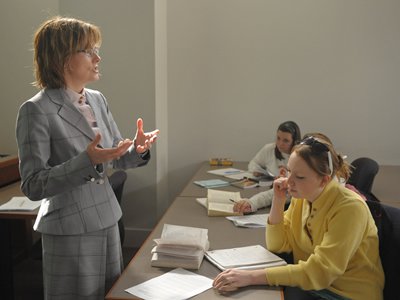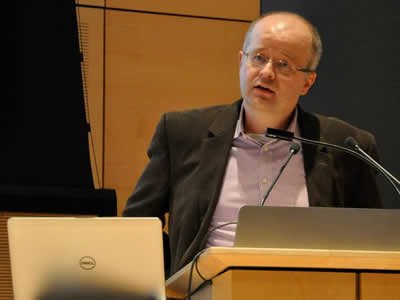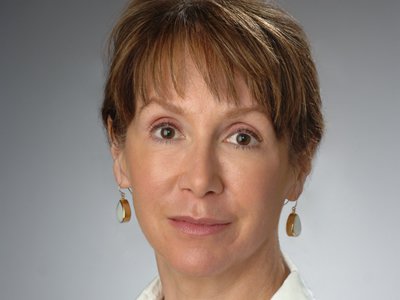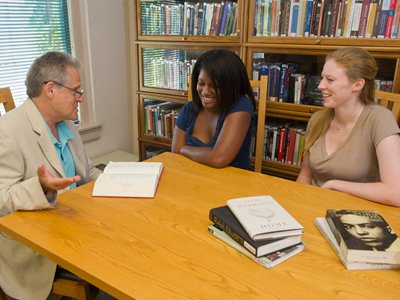English Department to Host Undergraduate Open House Nov. 2
Event will explore versatility of English and Textual Studies degree

Students interested in majoring in English and Textual Studies (ETS) are invited to an open house in the Department of English.
The event, which is free and open to the public, will take place on Wednesday, Nov. 2, from 4:30-6:30 p.m. in 401 Hall of Languages. Food and refreshments will be served. For more information, contact Carol Fadda, associate professor of English and director of undergraduate studies, at cfaddaco@syr.edu or 315.443.8790.
The English department is based in the College of Arts and Sciences.
“This is a great opportunity for students who already are ETS majors or minors, as well as those from across campus who are interested in the program,” Fadda says. “We’ll have people there to answer questions about the curriculum and course offerings; undergraduate opportunities, such as study abroad and internships; financial support; and the application process, in general.”
The program will feature brief remarks by associate professors Mike Goode, Chris Hanson, Patricia Roylance and Stephanie Shirilan; assistant professors Jonathan Dee, Will Scheibel and Meina Yates-Richard; and Sarah Harwell G’05, associate director of Syracuse’s top-ranked M.F.A. program in creative writing.

The English department offers multiple opportunities for ETS majors. In addition to earning a B.A. in ETS, students may focus on creative writing or film and screen studies.
Also available are a variety of lower- and upper-division courses, including those devoted to aspects of British, American, postcolonial and global literatures and cultures; film studies; and popular culture. Other offerings include the ETS dual major (often used in conjunction with English education), the ETS minor and combined degree programs with other units on campus.
“ETS is quite versatile,” Fadda says. “The program is an essential part of the liberal arts, with its emphasis on critical thinking, effective communication and creative problem solving. Whether students pursue it alone or in conjunction with another degree program on campus, the degree gives them key skills necessary for a range of careers.”
In A&S, many ETS majors land jobs in writing/editing, publishing, education, public relations, advertising, law or business/industry. Among its most famous alumni are musician Lou Reed ’64 and authors Joyce Carol Oates ’60, H’00; Alice Sebold ’84; and William Safire ’51, H’78.

Erin Mackie, professor and chair of English, attributes ETS’ success to hands-on learning and to the expertise and dedication of the faculty. She cites, as an example, “Living Writers” (ETS 107), one of the program’s most popular courses. Taught by Harwell, “Living Writers” exposes undergraduates to the literary process. To wit, it is offered in conjunction with the M.F.A.-sponsored Raymond Carver Reading Series. Each year, Harwell brings 12-14 poets and fiction writers to campus as part of the series.
Mackie: “Students read a visiting author’s book before he or she comes to campus, take a test on it, write a response to the book and have an in-depth discussion about it. They also get to participate in a Q&A session with the author and interact with M.F.A. students and faculty.”

Rounding out the degree program are SU Abroad courses in London, Florence, Madrid, Strasbourg, Beirut and Amman; internships with University Libraries, SU Press or Salt Hill Journal; and freelance writing opportunities with campus publications, such as the Daily Orange, Jerk Magazine or Verbal Seduction.
ETS students also may participate in the Distinction Program, in which they complete a senior thesis project and graduate with “Distinction in English and Textual Studies”; the Undergraduate Conference, where they present original material written for ETS courses; and the ETS Career Workshop.
“In addition to a faculty major advisor, each student is supported by a college advisor in Advising & Career Services,” Fadda adds. “Our goal is to maximize students’ undergraduate experience by helping them define and create academic pursuits and extracurricular activities, as well as plan for the future they want.”
